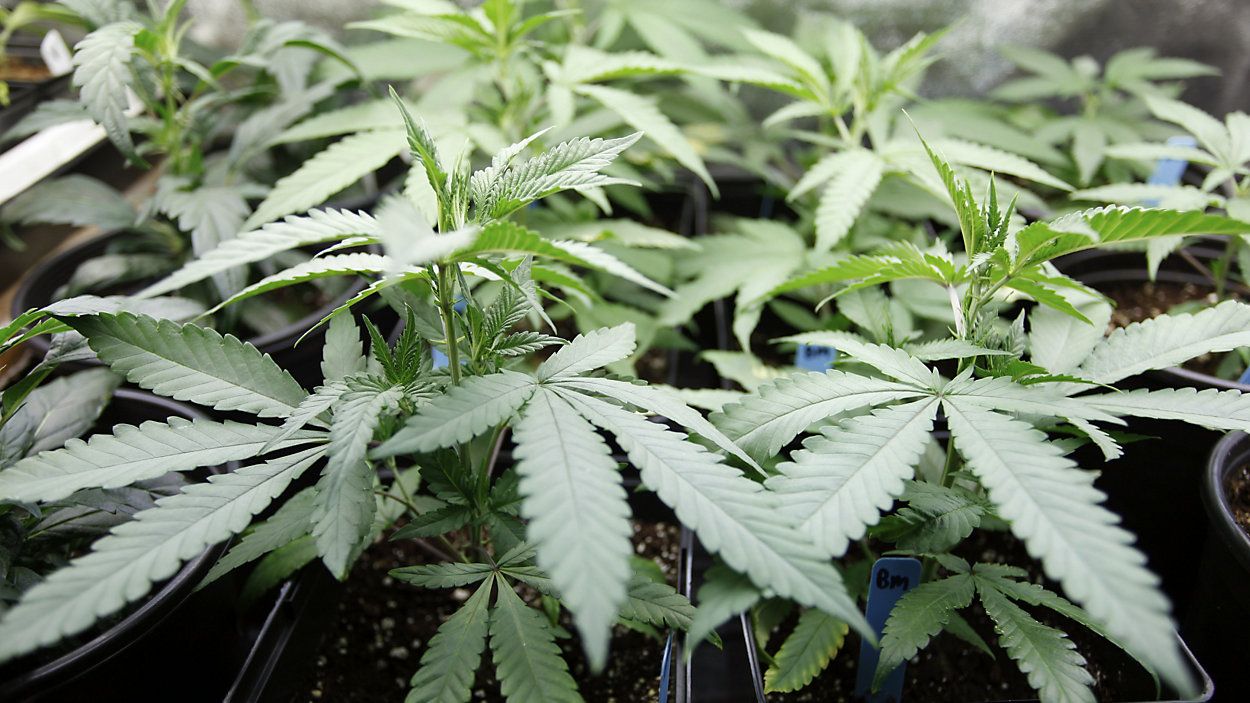RALEIGH, N.C. — A GOP-backed medical marijuana bill advanced in the North Carolina State Senate Wednesday. The Compassionate Care Act passed with a split vote in the Senate’s judiciary committee.
Senate Bill 711 would make medical cannabis legal in North Carolina for people with debilitating conditions like cancer, severe PTSD, multiple sclerosis and epilepsy. The bill, sponsored by longtime Republican Sen. Bill Rabon, sets up a framework for growing and selling marijuana to patients prescribed marijuana by a doctor.
“Recreational marijuana is not something we want in our state,” said Sen. Michael Lee, a Republican sponsor of the bill. “That should not keep up from doing the right thing for those people that are suffering.”
"As we move forward, we plan to tighten up anything and all loose ends," Rabon said. But he called on his colleagues in the Senate to pass the bill so it can "ultimately do what it’s intended to do: give some compassionate care to North Carolina citizens."
The bill still has a long way to go in the North Carolina General Assembly. It goes next to the Finance Committee and would have to get through two more committees after that before it could even be considered for a vote on the floor.
Three dozen states and the District of Columbia have legalized medical or recreational marijuana. Starting Thursday, recreational pot will be legal just over the border in Virginia.
RELATED: Medical marijuana in North Carolina? Bill gets a hearing in the state Senate
In western North Carolina, the Eastern Band of Cherokee Indians voted recently to legalize medical marijuana on tribal land, making it the first area with legal pot in the state.
The North Carolina Senate bill has tighter regulations than most other states that have passed laws to legalize medical marijuana.
While recreational weed would still be illegal, the bill would set up a system of dispensaries to sell medical marijuana to patients in North Carolina.
If the bill passed in its current form, the North Carolina Department of Health and Human Services would give up to 10 licenses statewide for medical marijuana suppliers. Those companies could each operate four dispensaries.
“If you are a licensee, you are required to essentially manage the 'seed to sale’ process,” Sen. Michael Lee, a New Hanover County Republican and a sponsor of the bill, said during a hearing on the bill last week.
“The idea behind only having 10, the idea behind having one licensee being responsible for ‘seed to sale’ is to really tightly regulate an area that states have done wildly different things in,” he said.
The bill proposes tight restrictions on what the dispensaries can look like, essentially requiring them to look like normal stores. There would be no big neon green pot leaf signs on dispensaries in North Carolina.
The proposal also lays out regulations on packaging.
“The products have to be designated, marketed, packaged in a manner that is appropriate for medicinal products. It cannot resemble a commercially sold candy or other type of food that’s typically marketed to children,” Lee said.
Doctors would have to get a special certification to be able to prescribe marijuana to patients.
Senators on the committee Wednesday approved an amendment that would require doctors to pick a delivery method for the prescribed marijuana, which could be smoked, eaten or taken in some other way.
Patients eligible for a marijuana prescription include people being treated for cancer, epilepsy, glaucoma, HIV, AIDS, amyotrophic lateral sclerosis (ALS), Crohn's disease, Parkinson's disease, PTSD and multiple sclerosis.
The DHHS would set up two new boards to oversee medical marijuana: a medical advisory board and a commission on marijuana production.
North Carolina is one of the minority of states in the country that has not legalized some form of medical pot. But the bill’s Republican sponsors say it’s past time the state made the drug available for people who need it to treat these severe conditions.
